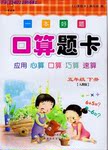题目内容
These problems are too hard to ________. Will you give me some advice?
A. look out B. work out C. hand out D. find out
练习册系列答案
 一本好题口算题卡系列答案
一本好题口算题卡系列答案
相关题目
题目内容
These problems are too hard to ________. Will you give me some advice?
A. look out B. work out C. hand out D. find out
 一本好题口算题卡系列答案
一本好题口算题卡系列答案